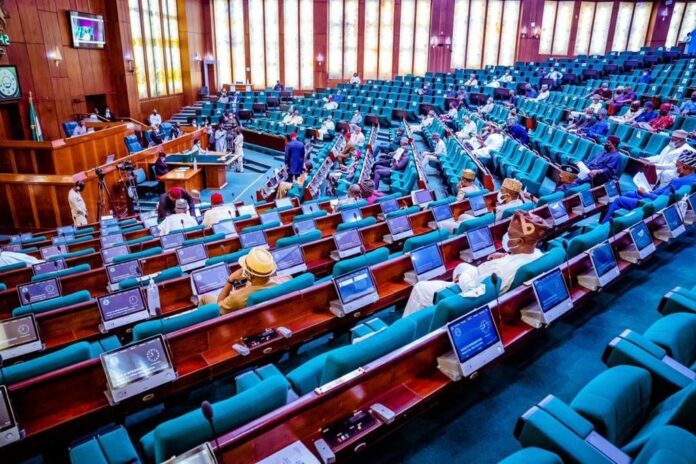Bill Seeking To Increase Number Of FCT High Court Judges Passes Second Reading
The House of Representatives on Thursday passed through second reading a bill seeking to amend the High Court of the Federal Capital Territory, Abuja Act, to provide for an increase in the number of judges in the FCT High Courts.
Leading the debate on its general principles, one of the co-sponsors, Hon. Jonathan Gbefwi, stated that the bill seeks to address a fundamental aspect of the judiciary’s ability to deliver timely justice, which is an increase in the number of judges in the High Court of the FCT, Abuja, from the current maximum of seventy to a minimum of one hundred Judges.
He noted that the High Court of the Federal Capital Territory stands as a crucial pillar in Nigeria’s judicial framework, serving not only the residents of Abuja but also, in many respects, playing a pivotal role in cases of national importance.
He recalled that at the beginning of the 2022/2023 legal year, the FCT High Court carried forward 12,513 pending cases from the previous year, underscoring a substantial backlog, and over the same period, the court assigned an additional 5,952 new cases, bringing the workload to a level that greatly strains available judicial resources.
He said that as it currently stands, the High Court of the FCT is limited in the number of judges it can engage, and this inadequacy significantly affects the rising volume and complexity of cases brought before it.
He expressed optimism that by increasing the number of judges, this amendment is anticipated to reduce delays in case resolution, ensuring more efficient handling of cases, and consequently, enhancing public confidence in the judiciary.
Gbefwi said, “I stand before you today to lead the debate on the general principles of a Bill for an Act to Amend the High Court of the Federal Capital Territory, Abuja (Number of Judges) Act, Cap H6, Laws of the Federation of Nigeria, 2004 to Provide for Increase in the Number of Judges in the High Court of the Federal Capital Territory, Abuja; and for Other Related Matters. The bill, which was read the first time on Tuesday, 23rd July 2024, seeks to address a fundamental aspect of our judiciary’s ability to deliver timely justice by seeking to increase the number of judges in the High Court of the Federal Capital Territory, Abuja.
“The High Court of the Federal Capital Territory in Abuja stands as a crucial pillar in Nigeria’s judicial framework, serving not only the residents of Abuja but also, in many respects, playing a pivotal role in cases of national importance. However, as it currently stands, the High Court of the FCT is limited in the number of judges it can engage.
“This inadequacy significantly affects the rising volume and complexity of cases brought before it. The court’s current judge complement, though dedicated, is insufficient to keep up with these caseloads. The considerable backlog reflects the limitations faced by the court in addressing the high volume of cases, which is only anticipated to increase with Abuja’s population growth and economic development.
“Given the rapid expansion of Abuja’s population, coupled with an increasing caseload spanning various legal domains, the need for additional judges has become pressing. This amendment bill is therefore introduced to address these systemic challenges by increasing the statutory number of judges for the High Court of the Federal Capital Territory.
“This Bill proposes an amendment to Section 1 of the extant Act to increase the number of judges in the FCT High Court from the current maximum of seventy judges (arising from the 2016 Amendment of the Act) to a minimum of one hundred judges, thus allowing for greater judicial capacity to address the current and future needs of the court. Mr. Speaker, Honourable Colleagues, this amendment is crucial; it is no doubt a necessary intervention to uphold the principles of timely justice, judicial efficiency, and the rule of law in Nigeria. I urge all members to lend their support to this bill, as it represents a concrete step towards strengthening our judiciary and ensuring that justice remains accessible and expeditious for all Nigerians.”
The bill was thereafter referred to the Committee on FCT Judiciary and Constitution Review for further legislative action.





